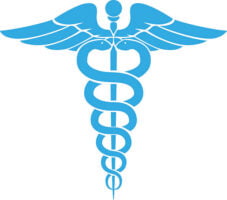Here’s a followup article to the one I posted about my Laprascopic Nissen Fundoplication procedure. I am happy to say that things have gone very well for me. Read on to see what has happened over first 6 months after having my operation…
In a nutshell, the results of the operation have been wonderful. My doctor did what’s called a “floppy wrap” which apparently isn’t as tight as some wraps are done. You may want to ask your doctor to explain this.
Since the operation, I have had ZERO indigestion or reflux, and I have taken ZERO reflux-related medication. Not only is this better for my body, but it is significantly less costly!
Swallowing food was a challenge at first. I had to very quickly learn to take very small bites of things and to chew very thoroughly. I also felt I was getting fuller faster. I had to be very careful with certain types of breads and “sticky” foods, and chicken gave me some occasional problems at times. But, once I learned to take smaller bites and chew thoroughly, it made things much easier–so much so that now, I can eat pretty much anything. After about a month on soft foods, and a followup doctor’s appointment, my wife treated me to some Sushi, my favorite food! I was very hesitant because of the sticky rice, but it went down well and I felt great.
Since the operation, I dropped some weight because of my changed eating habits. I went down from 225+ pounds to 205 pounds, and I have been maintaining that weight now for probably three months. That’s great news for me. As for what I can eat, I can now pretty much eat whatever I want–I just have to pay attention to bite sizes and to chew thoroughly.
That’s all the good stuff. Now, what have been some of the side effects? This type of operation can lead to some common side effects…
1. Swallowing
The swallowing difficulties typically come in the form of occasional spasming of the esophagus near where the nissen was performed. Food sometimes gets “stuck”, and the spasming can be quite uncomfortable–kind of a tightening feel in the chest that can be somewhat painful. (I admit though, that it’s more mentally disturbing than physical…) I just stop eating at that point, calm down, straighten up my posture, take some quiet deep breaths, and wait for it to pass. In almost every case, it just passes without incident, and nicely reminds me to pay attention to what and how I am eating.
I did say “almost”…I had two “major” incidents where I thought something was really stuck bad, and it panicked me. The feeling did pass within a few minutes (which can seem like an eternity.) It was my own fault because I didn’t chew thoroughly, but it was a lesson learned.
2. Stomach Issues
You may or may not be able to belch or vomit like you used to. The operation prevents stomach contents from backing up into the esophagus, but remember, your stomach will still produce acid, so you can still suffer some stomach-related indigestion symptoms. They just do not come in the form of reflux or “backing up” of anything. You still need to watch your diet and stress levels. Not being able to belch is quite strange at first. I learned the hard way one time: I drank about a half can of soda pop and watched my stomach begin to distend because of the gas buildup. And I couldn’t burp out the gas to save my life! Never did that again! OK, not to get gross on you, but the fact is that as your stomach produces extra acids and gas, it only has two directions it can go. Because the nissen shuts off the esophagus direction…well, you get the idea. Simply put, expect some more frequent lower gas symptoms, and occasional diarrhea or loose bowels.
3. Chest sensitivity
We recently purchased a home gym, and it has been a wonderful device to help keep in shape. I just have to be careful doing any exercise that stresses my chest muscles too much. While the laprascopic procedure is minimally invasive, the fact is that you still have five holes in your chest that must heal. I never did any exercises that did any damage, but chest and abdominal exercises sometimes result in soreness. So, I just tempered my male ego, lowered the weights, and worked on doing more reps. So far, I seem to be doing well.
Conclusion
All in all, the procedure has has been a great success for me. Understand that different people have different results, so please don’t take my experience as a reflection of how yours will go. That said, success rates are very, very high. For me, the simple fact that I have not had any reflux, and I have not taken any medication (antiacid, Nexium, etc.) since the operation has made everything–including the side effects–completely worth it.
One final recommendation: If you have a spouse, relative, or close friend with whom you spend a lot of time, by all means ask them to help hold you accountable with your eating habits. My wife would regularly say, “That bite is too big!” or “You’re eating too fast!”, and though it was admittedly annoying at times, it really helped me focus better, and for that I am grateful.
I hope you found this interesting. Please feel free to contact me should you have any questions.
